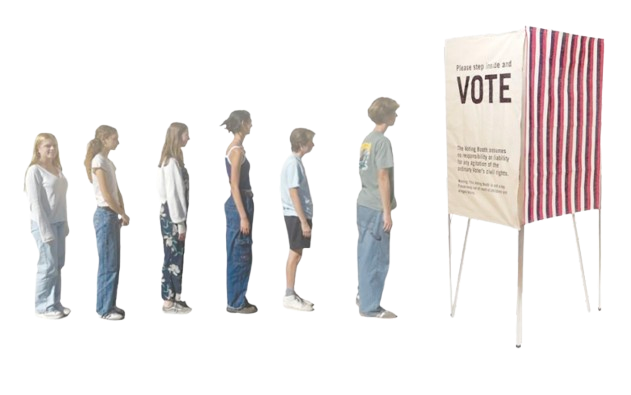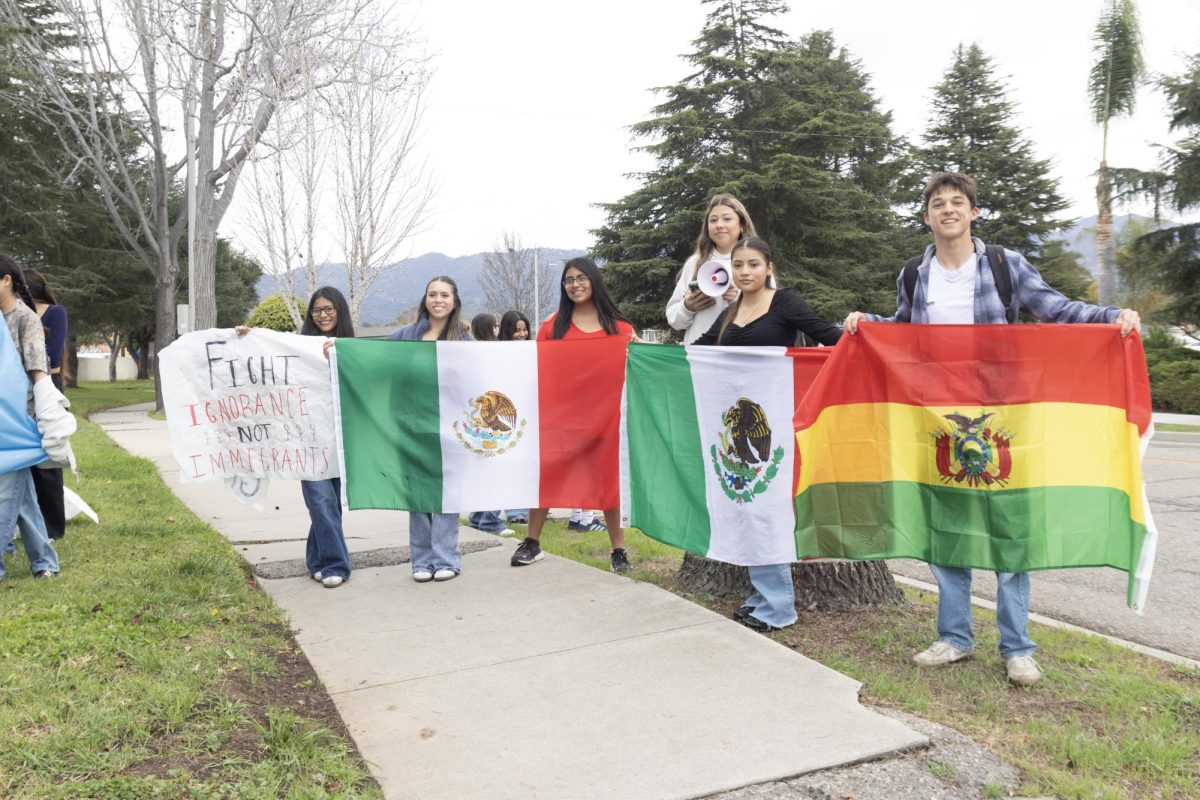Gen Z, the current generation of young adults, has constantly been in the spotlight as they navigate their societal position, from starting social movements to influencing trends. For many members of Gen Z, the 2024 election was their first opportunity to cast a ballot in a presidential election.
In what is considered to be the first study of voter turnout in the US (1920s), political scientists Charles Edward Merriam and Harold Harold Foote Gosnell identified that young people, minorities, and low-income citizens were less likely to vote. This still holds true today. Historically, young voter turnout is low, with less than half of Americans aged 18-29 voting in the 2016 election creating a gap of 15 points compared to the overall turnout regardless of voter age (U.S. Census Bureau). However, in 2020 there was a significant increase in young voter turnout, suggesting that Gen Z was beginning to change this precedent.
Leading up to the 2024 election, Gen Z was polling in favor of Harris. These statistics seemed to mirror the 2020 election where 65 percent of young voters voted for Joe Biden. In pre-election polling, half of Gen Z voters said they would vote for Kamala Harris, while ⅓ said they would vote for Donald Trump (NBC News pre-election poll). Other surveys showed even greater support for Harris. Although this seemed to reflect Gen Z’s democratic voting tendencies, there was noticeably less support than in 2020.
While in pre-election polling it seemed as though young voters were leaning towards the democratic party, the gender gap among Gen Z voters was striking. Gen Z women favored Harris by 30 points over Trump while Gen Z men favored Harris but only by four points (NBC news and SurveyMonkey poll). In a Times/Siena College Poll of swing states taken in August 2024 young men favored Trump by 13 points, in contrast, young women favored Harris by 38 points, creating a 51-point gender gap between Gen Z men and women.
A University of Chicago Gen Forward study found that among men under 30 who voted for Biden in 2020, those who were sticking with him (when he was still the democratic nominee) were likely to be white and college-educated. However many young men, to a large extent non-college-educated men, felt disillusioned with the Democratic Party and began aligning with the Republican Party. According to the New York Times, when interviewed, Gen Z men who planned to vote for Trump said that they felt unvalued and that in recent years it had “become harder to be a man.” They also said they valued strength in a president but did not support other more radical values often embraced by the Trump campaign, like misogyny. This shift in attitude from young men provides essential insight as to why there is such a significant gender gap for Gen Z and marks a change in political history.
Data from the Kagan first-quarter 2023 U.S. Consumer Insights survey suggests that Gen Z adults are far more likely to rely on social media for news than older generations. This has a severe impact on what type of media young voters consume, with fake news being rampant across all social media platforms.
Since the 2020 election, members of Gen Z have actively shared their political views and have polarizing discussions on social media, highlighting its influence on young voters. In late July, after President Biden dropped out of the race and Harris stepped in, Harris received countless celebrity endorsements, most on social media.
One instance of this was when British singer Charli XCX, who quickly rose to fame with her album “Brat”, tweeted “Kamala IS brat.” This tweet immediately went viral, engaging young voters in the conversation surrounding the then-upcoming election. Very soon after, the Kamala headquarters X account (formerly known as Twitter) changed its background to a brat-themed sign that said “kamala” on it. This lively exchange between young voters and a political campaign sparked lots of support for Harris across social media, which very well may have contributed to her strong pre-election polling among first-time voters.
At San Marcos, most students are under 18 and therefore can’t vote, but some students are actually able to vote.
“As someone who has voted, I believe that it is your civic duty to [vote]. I think, even if you disagree or don’t like either candidate it is still crucial that you vote. Statewide or local elections can also have a more direct impact on your community,” said senior Ben Watson.
On November 5, the day of the 2024 election, despite many experts saying that the race would be close, Trump won the popular vote and the electoral vote by a landslide, with Republicans also securing majorities in the House and Senate.. Political analysts seem to think that this is due to many factors, but notably, young voters played a role. Data collected in exit polls shows that since 2008, winning democratic candidates have received support from at least 60 percent of young voters, but in the 2024 election, Harris only received 54 percent of the vote.
In pivotal swing states, the lack of young voters’ support was both pronounced and consequential. In Pennsylvania, Wisconsin, and Michigan, regions where Biden received support from young voters in 2020, there was a noticeable shift in 2024. The change was most stark in Michigan, where Harris received only 49 percent of young voters’ support, an eye-opening 24-point difference from Biden’s results in the 2020 election. This trend is widely attributed to the support Trump received from young men. A tendency for men under 30 to lean towards Trump was identified prior to the election, and exit polls confirmed this: 56 percent of young men voted for Trump in the 2024 election, according to an Associated PressVoteCast poll, creating a 16-point gender gap with Gen Z voters.
Why is this shift happening? 55 percent of young men who voted in the 2024 election had a favorable view of Trump (according to an Associated PressVoteCast poll). Another explanation for this phenomenon is the influence of social media personalities such as Joe Rogan. One week before the election, Trump was interviewed by Joe Rogan for his podcast, “The Joe Rogan Experience,” which is currently the number-one podcast in the world. Making up the majority of Rogan’s listeners, Rogan’s endorsement of Trump seems to have swayed younger men the thoughts of younger men.
Gen Z’s impact on this election has clearly demonstrated the power of youth engagement in politics. For high school students, politics may seem foreign and unimportant, yet the 2024 election has shown that young voters are able to use their voices to influence politics and maybe even the outcomes of elections. Even if you can not yet vote, staying informed and engaged in political discourse can help you be more involved and prepared for your future civic duty: voting.


















